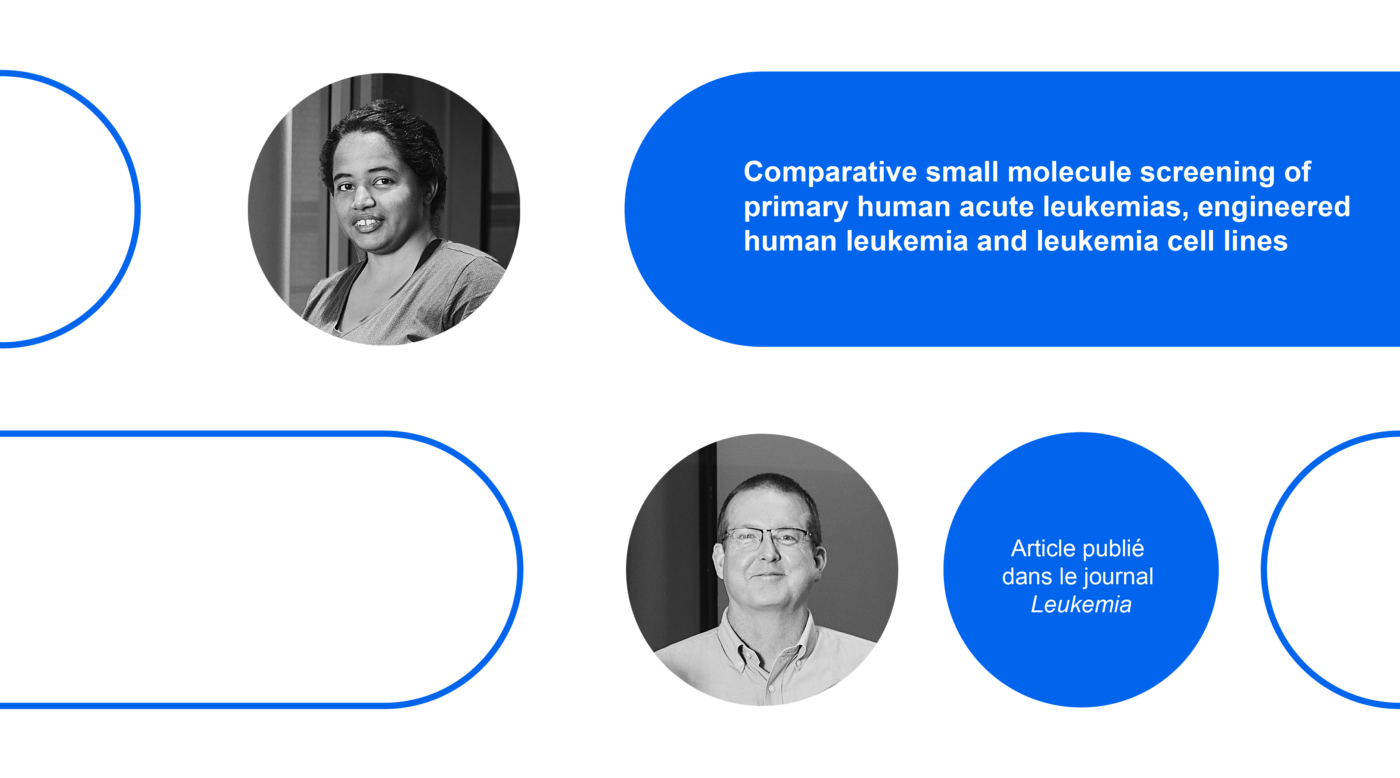News
Identification of promising small molecules for the treatment of pediatric cancers
Published on January 15, 2025
The team led by Brian Wilhelm, Director of IRIC’s High-Throughput Genomics Research Unit, has developed a new drug discovery platform for high-risk leukemias. Doctoral student Safia Safa-Tahar-Henni led the project, which has been published in the journal Leukemia.
Identifying the right therapeutic targets: the choice of the experimental model must be carefully considered.
The development of targeted therapies for high-risk pediatric leukemia remains an unsolved puzzle to this day. To tackle this major challenge, the Wilhelm laboratory team embarked on a large-scale drug discovery project. More than 11,000 molecules were tested for their ability to inhibit the survival and growth of human leukemia cells from three different sources: samples from patients with leukemia, laboratory-generated models of human leukemia and established human leukemia cell lines.
Striking differences were observed between the responses of the cell lines and those of the other two cell sources. “We found that using leukemic cell lines can lead to misleading results in drug discovery,” explains Professor Wilhelm.
“These cell lines do not grow in the same way as cells taken from patients.” The efficacy of drug discovery experiments therefore greatly depends on the source of the cells used in the assays.
A platform for the discovery of new therapeutic avenues
The project identified twelve molecules with anti-leukemic potential.
“The molecules we have identified are not only capable of killing various leukemia cells, but also multiple myeloma cells, another type of deadly blood cancer,” says the researcher. “What’s more, these molecules were selected specifically because they eliminate cancer cells without affecting normal cells,” he adds. “This nuance is crucial for the development of targeted treatments that cause fewer side effects, which are terrible with the standard chemotherapy currently available.” Dozens of new versions of these selected molecules are being developed for further study.
Using the approach developed for other types of cancer could pave the way for significant advances in the identification of more effective anti-cancer treatments.
Cited study
Safa-Tahar-Henni, S., Páez Martinez, K., Gress, V. et al. Comparative small molecule screening of primary human acute leukemias, engineered human leukemia and leukemia cell lines. Leukemia 39, 29–41 (2025). https://doi.org/10.1038/s41375-024-02400-w
